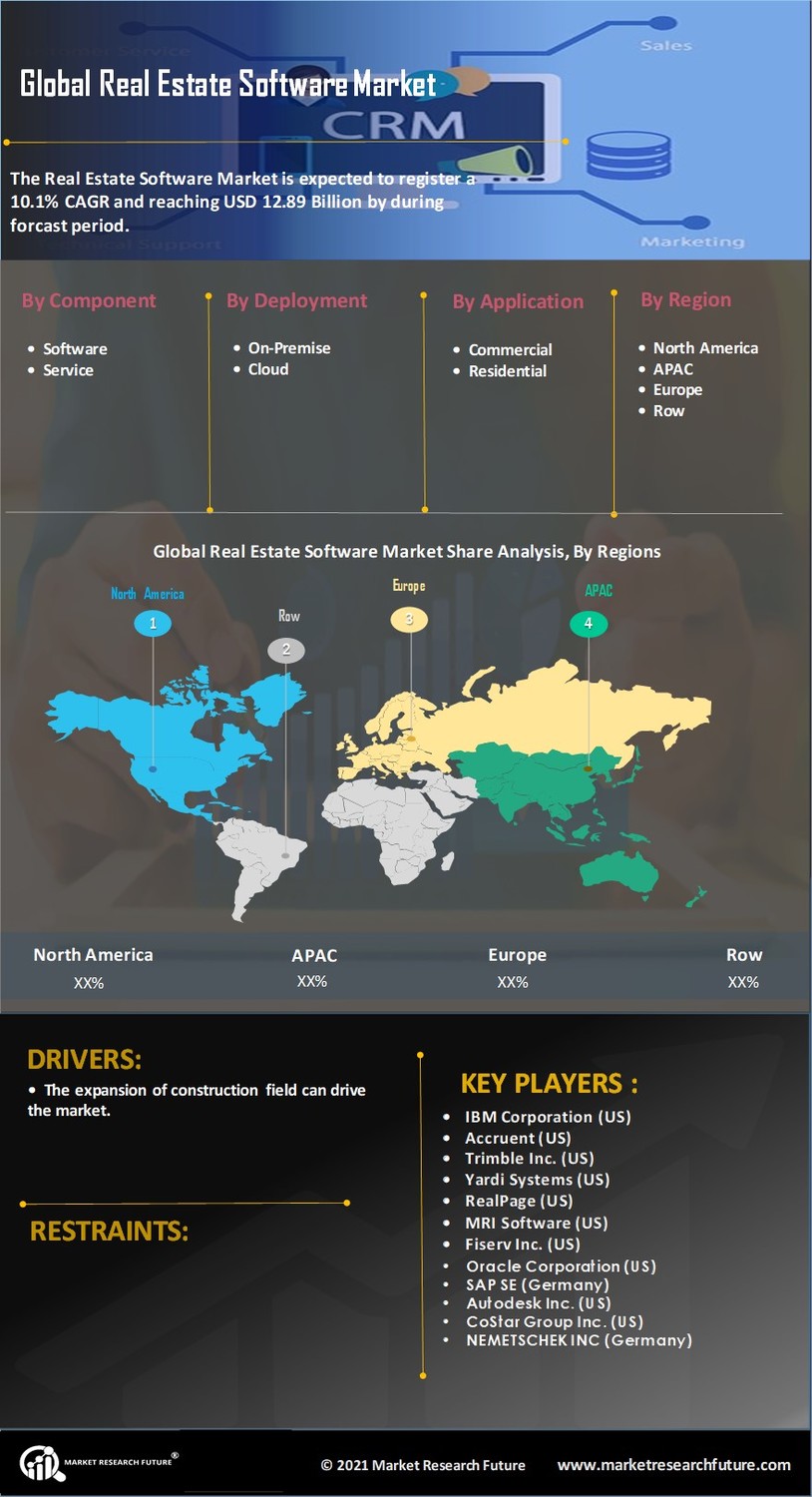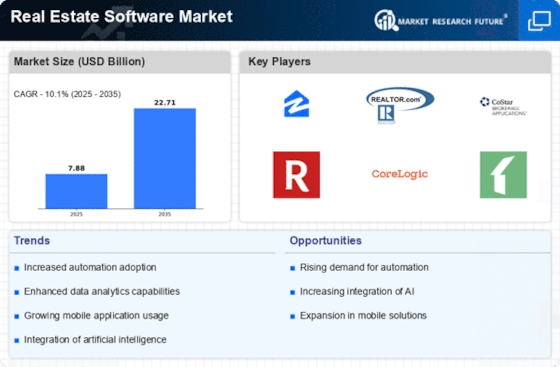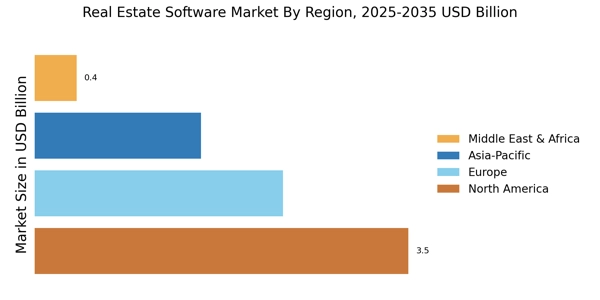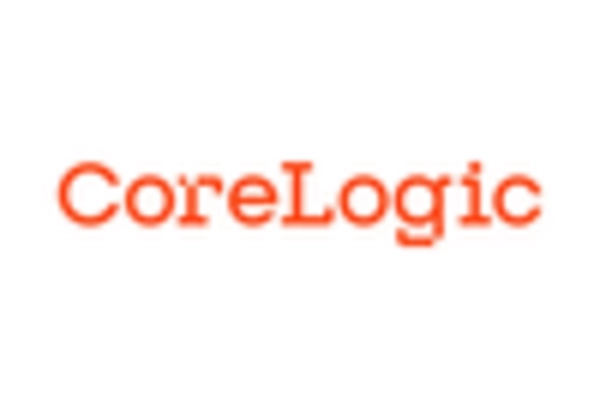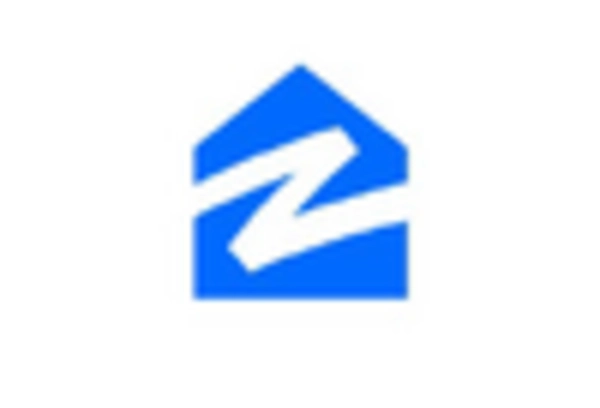Adoption of Blockchain Technology for Transactions
The adoption of blockchain technology within the Real Estate Software Market is gaining traction as stakeholders seek to enhance transaction transparency and security. Blockchain offers a decentralized ledger system that can streamline property transactions, reducing the need for intermediaries and minimizing fraud risks. Market forecasts suggest that the blockchain in real estate sector could grow at a rate of 20% annually, driven by the increasing demand for secure and efficient transaction methods. As more real estate companies explore blockchain solutions, the Real Estate Software Market is likely to witness a shift towards innovative transaction processes that leverage this technology, potentially revolutionizing how properties are bought and sold.
Growing Importance of Data Security and Compliance
In the Real Estate Software Market, the growing importance of data security and compliance is becoming increasingly evident. As real estate transactions involve sensitive personal and financial information, software solutions must prioritize robust security measures to protect against data breaches. Regulatory frameworks, such as the General Data Protection Regulation (GDPR), impose strict compliance requirements that software providers must adhere to. This focus on security is expected to drive innovation within the industry, as companies invest in advanced encryption technologies and secure cloud storage solutions. The market for compliance-focused real estate software is projected to expand, reflecting the heightened awareness of data protection among consumers and businesses alike.
Increased Demand for Property Management Solutions
The Real Estate Software Market experiences a notable surge in demand for property management solutions. As property owners and managers seek to streamline operations, software that facilitates tenant management, maintenance tracking, and financial reporting becomes essential. According to recent data, the property management software segment is projected to grow at a compound annual growth rate of 8.5% over the next five years. This growth is driven by the need for efficiency and transparency in property management, as stakeholders increasingly rely on technology to enhance tenant experiences and optimize operational workflows. Consequently, the Real Estate Software Market is adapting to meet these evolving needs, offering innovative solutions that cater to diverse property types and management styles.
Rise of Mobile Applications for Real Estate Services
The proliferation of mobile applications is reshaping the Real Estate Software Market, as consumers increasingly prefer to access real estate services on their smartphones. Mobile apps facilitate property searches, virtual tours, and communication with agents, providing users with convenience and flexibility. Recent statistics suggest that mobile applications in the real estate sector are expected to witness a growth rate of 25% over the next few years. This trend indicates a shift in consumer behavior, as more individuals seek to manage their real estate needs through mobile platforms. Consequently, software developers are focusing on creating user-friendly mobile applications that cater to the demands of tech-savvy consumers, thereby enhancing their competitive edge in the Real Estate Software Market.
Integration of Virtual Reality in Real Estate Transactions
The integration of virtual reality (VR) technology into the Real Estate Software Market is transforming how properties are marketed and sold. VR allows potential buyers to experience immersive property tours from the comfort of their homes, significantly enhancing the buying process. This trend is particularly relevant as the demand for remote viewing options continues to rise. Market analysis indicates that the use of VR in real estate is expected to grow by approximately 30% in the coming years. As real estate professionals adopt VR tools, the Real Estate Software Market is likely to see increased competition among software providers, each striving to offer cutting-edge solutions that enhance user engagement and satisfaction.
